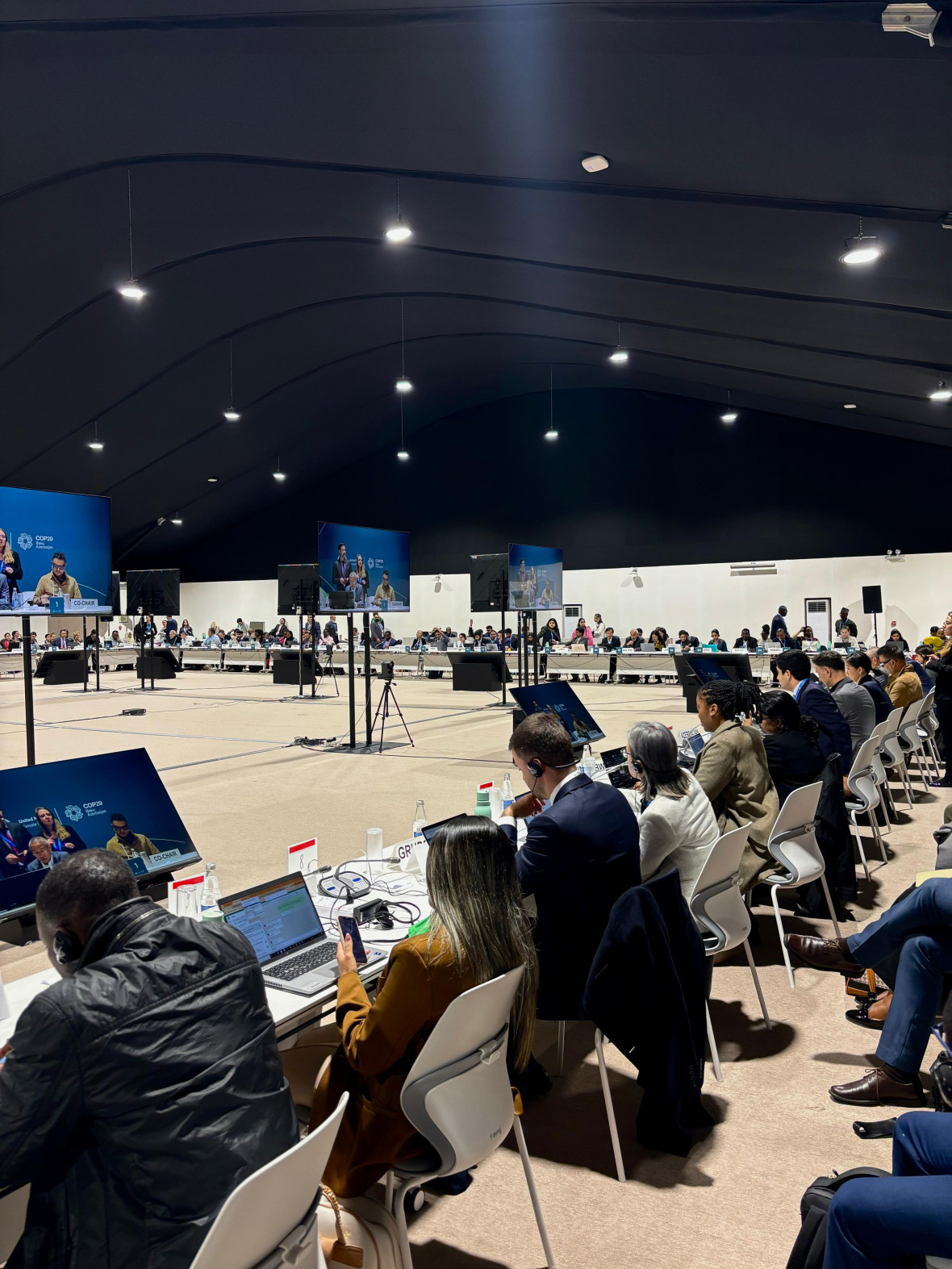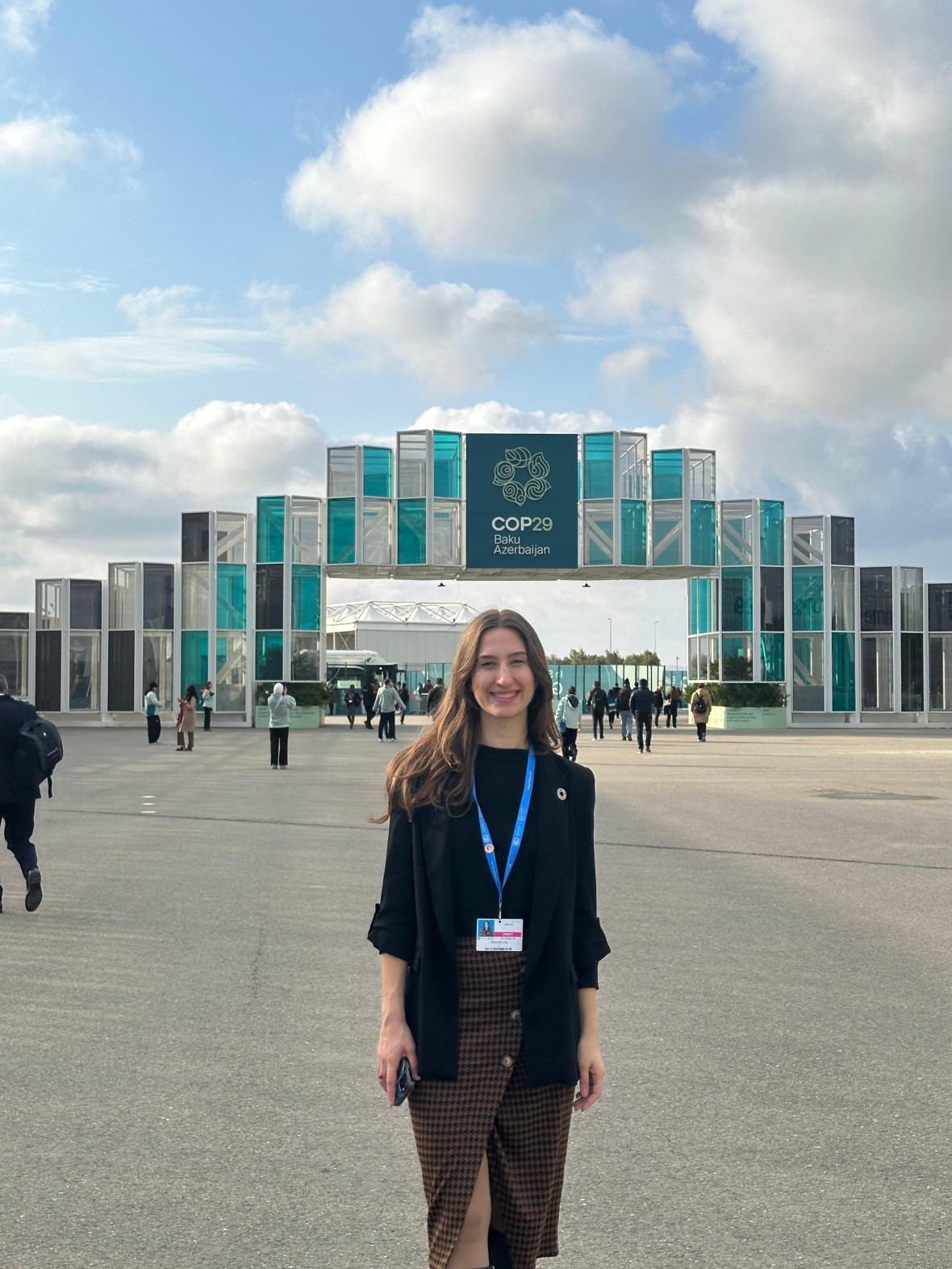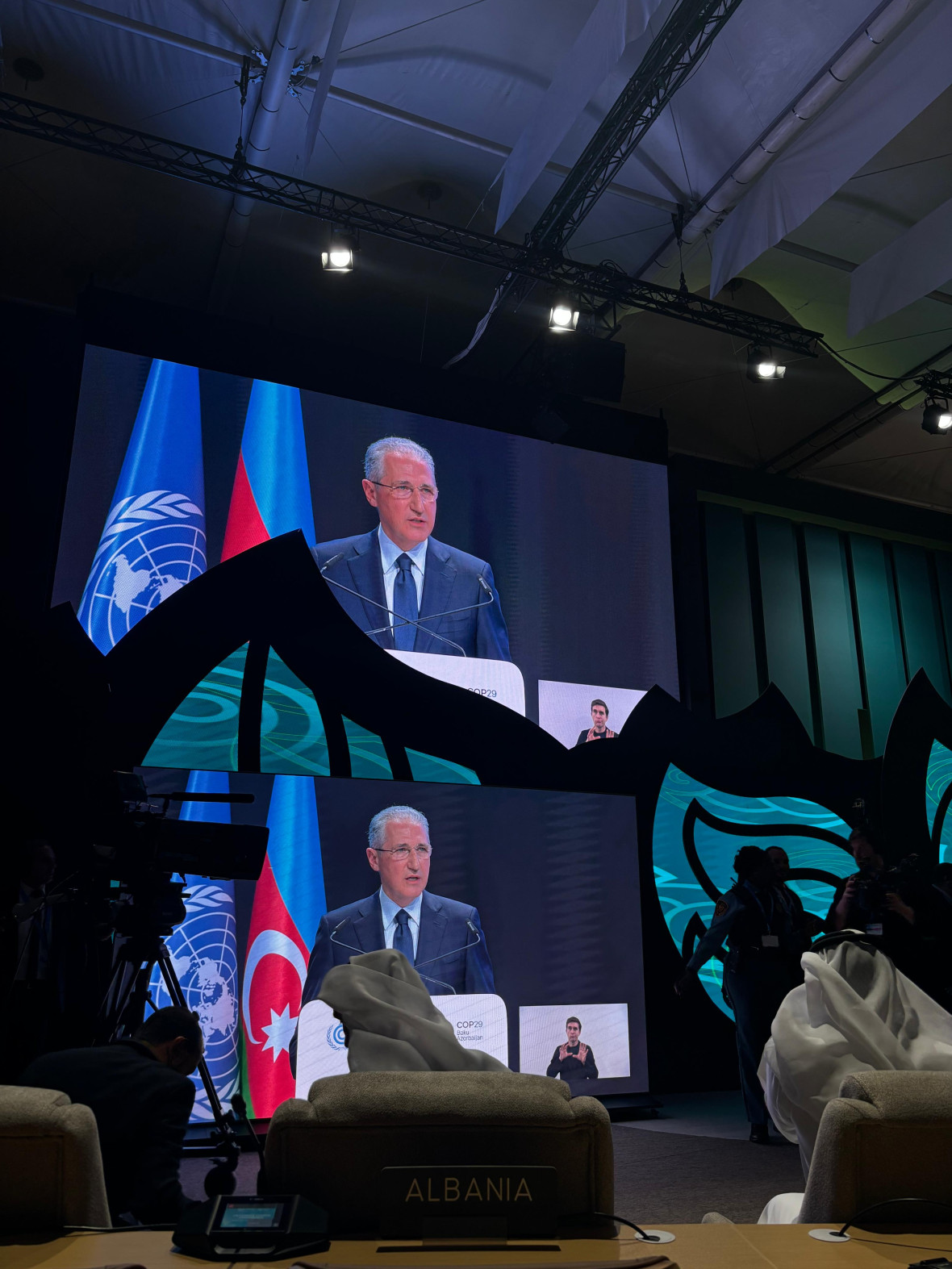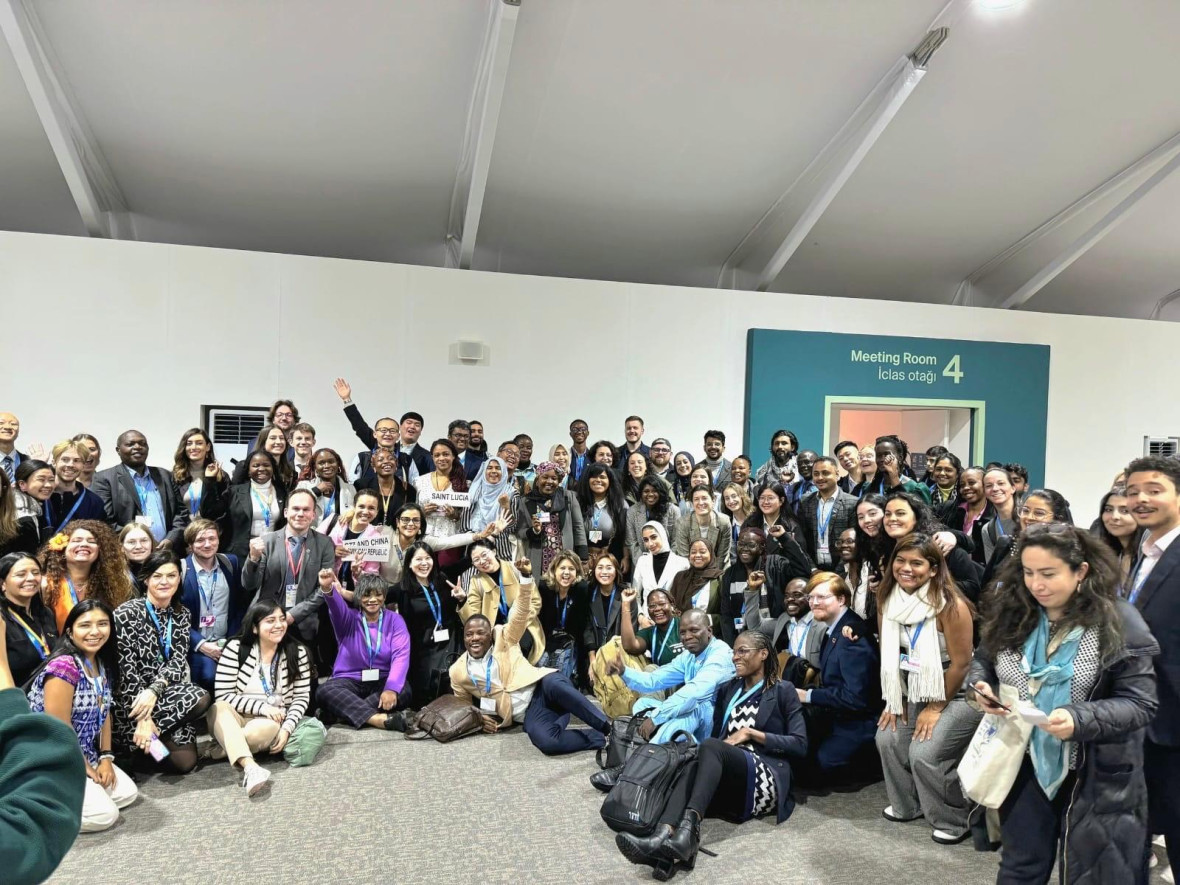Negotiating Action for Climate Empowerment at COP29
07.01.2025
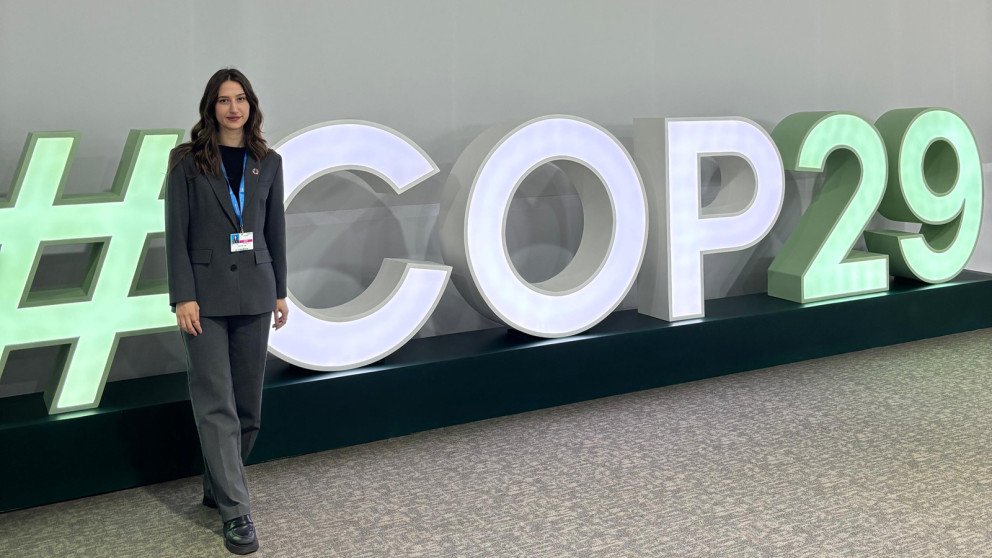
I entered COP29 as a first-timer with very little knowledge of climate negotiations. While I had previously participated in SB60 as an observer and trained with the Climate Youth Negotiator programme for six months, I attended COP29 in a different and more demanding capacity, as a young negotiator for my country, Albania. It was an experience that was both exciting and challenging.
My main focus during the negotiations was on Action for Climate Empowerment (ACE), a topic that I have researched extensively over the past year as part of my fellowship. Additionally, I followed finance negotiations, which was inevitable given the prominence of financial issues at what many dubbed the "Finance COP."
Being part of a small country delegation with an interesting position, and navigating the process as a first-time negotiator, offered a distinctive perspective. The experience was a whirlwind of emotions, ranging from pride in contributing to global discussions to frustration over the slow pace of progress.
When it came to ACE, there were significant achievements: After intense consultations, a text was agreed upon under the Subsidiary Body for Implementation (SBI), which included references to financial support. This marked progress compared to the previous year when the document was deferred under Rule 16. However, there is still a long way to go in securing a stronger and more impactful text.
Observing ACE from different capacities, I noticed that the ACE community stands out within the broader COP negotiation process. ACE stands for Action for Climate Empowerment, a term derived from Article 6 of the United Nations Framework Convention on Climate Change (UNFCCC) and Article 12 of the Paris Agreement that emphasizes the importance of empowering all members of society to engage in climate action. Its six areas of focus include education, training, public awareness, public participation, public access to information and international cooperation. One of the core principles of ACE is that its objectives cannot be achieved through the efforts of a single actor, rather, it requires the active involvement of a wide range of stakeholders to drive meaningful climate action. Within the negotiation process these stakeholders can be:
- Government delegations: Parties to the UNFCCC
- Observers: NGOs, youth groups, educators, and civil society organizations that contribute ideas and advocate for robust ACE implementation.
- Experts and practitioners: Specialists in education, training, and public engagement who develop and implement programs aligned with ACE objectives.
ACE negotiations have a particularly participatory nature. It was interesting to see that speaking time was managed so that observers had the opportunity to deliver input and that observers were allowed to attend the informal consultations typically reserved for national delegations.
While COP29 in Azerbaijan made some progress, it felt incomplete, a sentiment likely shared by many participants. For me, this feeling was accompanied by one pressing question: Why did we lose the momentum built during COP28? So-called ‘post-election fatigue’ undoubtedly plays a role. The outcome of the U.S. elections cast a shadow over the negotiations. Many delegates arrived with diminished expectations, sensing that global climate leadership had been weakened. Several heads of state from key countries, including China, Canada, India, Germany, and the U.S., did not attend. Midway through the conference, Argentina withdrew from negotiations, and France’s climate minister canceled their attendance due to political tensions.
The dynamics of the host country also likely played a role. Azerbaijan is heavily dependent on natural gas and faced criticism for its stance on fossil fuels. On the second day, President Ilham Aliyev made headlines with remarks calling oil and gas a “gift from God” and criticizing Western media. The tone of the event often felt contentious, further adding to the already fragile atmosphere.
Many countries were already looking ahead to COP30. With the next conference set in Belem, Brazil, next year, and Brazilian President Lula setting ambitious goals for the event, COP29 was increasingly seen as a bridge to COP30, which was branded as "the turnaround COP." COP29 came to seem more like a moment of pause rather than one of action. For example, despite the urgent calls made last year to develop a clear roadmap for phasing out oil, gas, and coal, this critical issue was deferred to COP30.
COP30 indeed presents an opportunity to regain the momentum that was lost in 2024. With updated Nationally Determined Contributions (NDCs) due this year and a growing sense of urgency to address the widening gap between current efforts and the goals of the Paris Agreement, the global community cannot afford further delays or diluted outcomes.
For all its frustrations, COP29 was a learning experience as it showed me the complexities of global climate negotiations. I’ve come to understand that negotiations often feel slow, and it’s easy to feel frustrated by the pace. There’s immense pressure on every decision, as each step affects countries, communities, and ecosystems around the world. The stakes are high, and the complexity of balancing competing interests and finding common ground can make progress seem slow.

